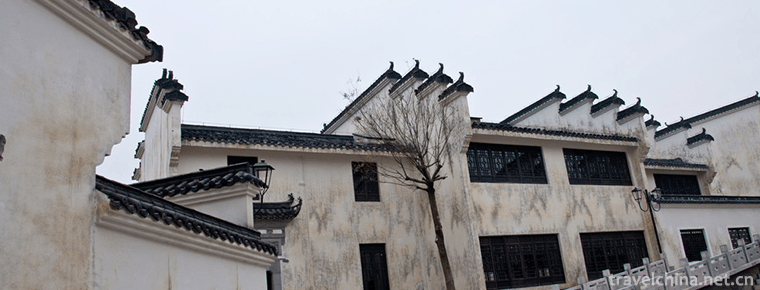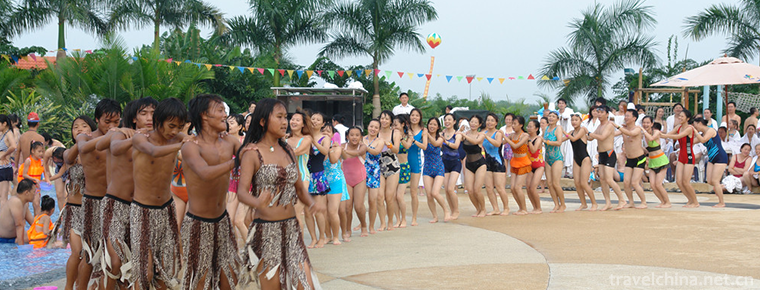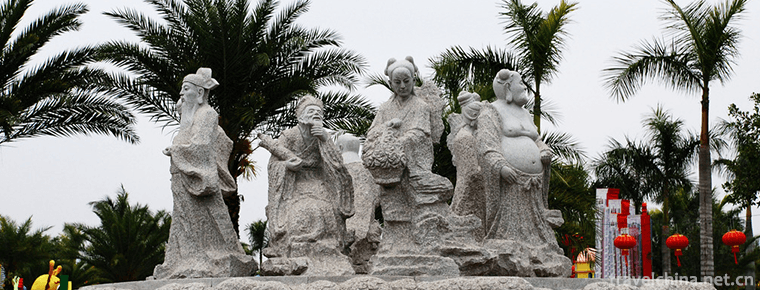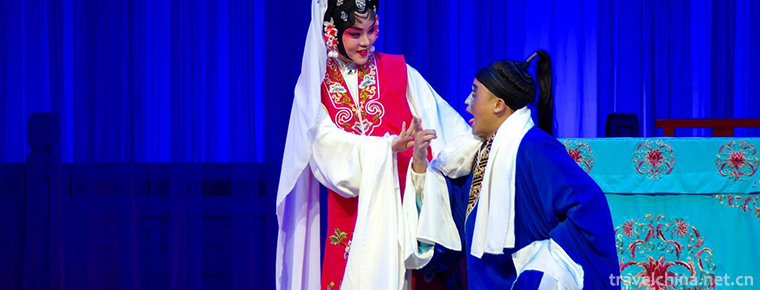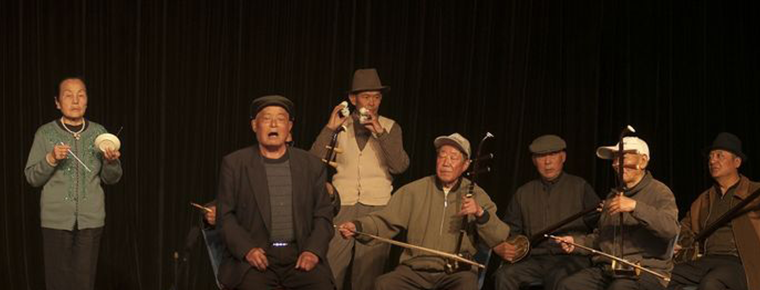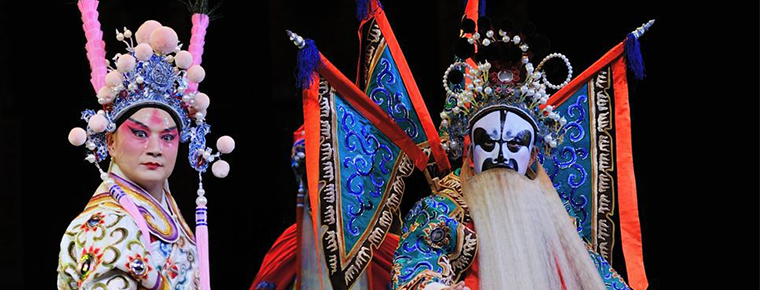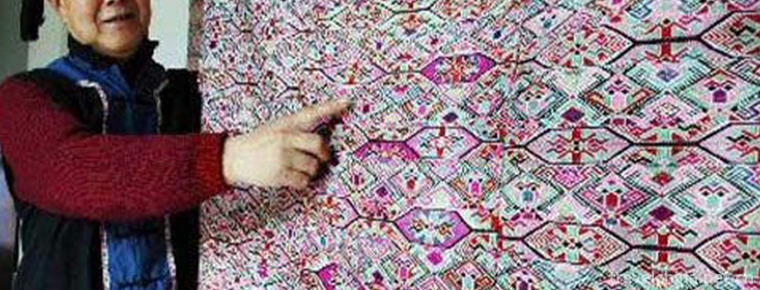Manchu speaking Department
Manchu speaking Department
Manchu Talk Department, Jilin Province's local folk literature, one of the national intangible cultural heritage.
Manchu Folk Talk Department refers to a long prose narrative literature created and preached by Manchu folk artists, which aims to reflect the war life and emotional world of the Manchu people in history. Because its style is close to the storytelling of Han folk artists, each book can be told independently, so it is called "Shuoba".
On May 20, 2006, the Manchu Ministry of Commerce was approved by the State Council of the People's Republic of China to be included in the first batch of national intangible cultural heritage lists with the non-legacy numbers I-12.
historical origin
The Manchu Folk Talk Department originated from the more ancient form of folk narration - "Talking about the Ancient". In ancient times, the Manchu language is called "Ureben / ulabun", which means the story of the family's journey, that is, it is spread among the major families of the Manchu nationality, telling the story of the nation, especially in the history of the clan. Before entering the Central Plains, the Manchu people hardly had the habit of recording the history of their own nation in the form of texts. At that time, the most common way for people to record history was to pass on history orally through tribal chiefs or shamans and educate their descendants. There is a proverb that says, "Old people don't talk about the past, but small ones don't." Speaking of the ancients is to use the most popular form of storytelling to remember ancestors and educate future generations so as to enhance the cohesion of the nation or clan. Here, talking about the past is no longer a simple entertainment, but an important means of national education, heroism education and historical and cultural education. In the traditional Manchu society, people often hold contests to talk about ancient times. The emergence of Manchu octagonal drum and Qingyin Zishu in the middle of Qing Dynasty is the fission of this tradition under specific historical conditions. Historically, in the process of choosing tribal chiefs, chiefs and shamans, Manchu society required that the elected people must have a "golden mouth" - that is, they must have the ability to speak the past. The advocacy of ancient customs objectively created conditions for the emergence of Manchu folklorists and folk storytellers with outstanding narrative abilities.
There is another important reason for the emergence of Manchu folk storytelling department, which is influenced by the traditional storytelling of the Han nationality. Historically, the Manchu people have won the Central Plains twice, which has little influence on the Central Plains culture. On the other hand, in the process of long-term communication between the Manchu and the Han people, the Manchu people have also absorbed a large number of excellent Chinese culture. Folk storytelling is a typical example.
In the history of Chinese literature, the performance form of storytelling can be traced back at least to the Tang and Song Dynasties, and has been flourishing ever since. In the Qing Dynasty, with the entry of the Manchu people into the customs, this popular and understandable form of performance became more vibrant. At that time, stories were mostly collected from famous historical stories, official cases and martial arts novels in the history of Han literature, such as Romance of the Three Kingdoms, Da Ba Yi, Xiao Ba Yi, Shi Gong Case, Zhongyi Water Margin, Yang Jia Jiang and so on. Through the special media of storytelling, these works not only became well-known stories in Manchu Society at that time, but also became well-known stories for later Manchu people. The cultivation of the performance style of the folk storyteller provides a reference. People who have heard or read Manchu long stories will clearly realize that in Manchu long stories, both the selection of narrative content and the positioning of performance style are different from Han folk stories. For example, the heroes of the story are mostly heroes of chivalry, courage, helping the weak and helping the poor, and protecting the country. In the process of plot unfolding, suspense is often used, as well as the technical treatment at the beginning and the end, and the borrowing of conventions in the process of initiation and transition, etc., which have obvious commonality to a certain extent.
Inheritance and protection
Inheritance status
Because of the development of modern economy and technology and the impact of various forms of entertainment, the narrative activities of the ancient and pure narrative departments have gradually lost their position. Many young Manchus have no idea of the word "Ulben" or the rules and significance of the narrative departments. The elders who are familiar with the Manchu cultural tradition and the inheritors of the Shuoba died year by year, which caused great losses to the Manchu culture. The surviving inheritors are all over the ages and are sick. They have not trained new inheritors. The only inheritor who can be told in Manchu is Madame He, and the Manchu Speech Department is in danger of disappearing.
Inheritance value
Compared with the existing Manchu folk literature and writers'literature, it has a special value that other Manchu literary works can not achieve.
First of all, the Manchu Folk Talk Department is the Manchu literary works created and inherited by the Manchu people themselves (only a few of them are created by the Han Army in the Eight Banners). These works not only systematically and comprehensively reflect the social life of the Manchu people in history, but also fully and accurately express the Manchu people's own world outlook, values and their unique aesthetic taste.
Secondly, these folk storytellers are all folk artists, shamans, clan chiefs as their own nation or clan history, telling their descendants. Although the storytellers have artistic processing, the narrative elements such as time, place, characters and events are authentic and credible. For the Manchu people who have no tradition of recording history basically, the chapters and chapters of Shuoba have extremely special historical value and are indispensable reference materials for studying the history of Manchu civilization.
Inheriting characters
Fuyuguang, male, Han nationality, was born in May 1933. August 2017 was designated as the fourth batch of national intangible cultural heritage inheritors, project: Manchu Shuowei Department.
Zhao Dongsheng, male, Manchu. May 2018 was designated as the fifth batch of national intangible cultural heritage successors, project: Manchu Shuobao Department.
protective measures
With the state's emphasis on intangible cultural heritage, the rescue work of the Manchu Talk Department has gradually been put on the agenda. In 2002, Jilin Province set up an integrated Editorial Committee for the art of the Manchu Traditional Talk Department, and the rescue and protection project of the Manchu Talk Department was officially launched. In addition, special funds are allocated every year to support the rescue and protection of the Manchu Ministry of Speech. There are 10 surviving storytellers in Jilin Province. They have recorded and sorted out their storytelling departments. They have established archives databases including words, sounds, images and so on. They have collected 35 storytelling departments. As a result of the first phase of the rescue and protection project of the Manchu Shuoba, 10 books have been compiled and planned to be published, including The Legend of the Red Roman Lady, The Marriage of Bijian, Nuzhen Genealogy Review, Jinwu Shuzhuan, etc. Experts believe that as an oral intangible cultural heritage, rescuers should take a restoring stand in recording and sorting out the art of Shuobao, that is, to pursue the original flavor and to require the presentation of the original ecology of national culture. But at the same time, they also pointed out that the rescue of Manchu said that the art is not to restore its original appearance, put it on the shelf, but to carry out scientific development and utilization on the basis of rescue and protection, to serve the reality.

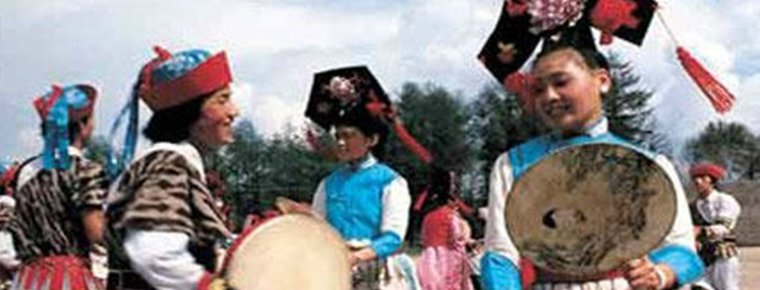
-
Shengzhong Lake Scenic Area
Shengzhong Lake Scenic Spot: The largest artificial lake in southwest China, Shengzhong Lake, is located in Shengzhong Lake Scenic Spot of National AAAA Tourist Area in Southern County of Sichuan Prov.
Views: 222 Time 2018-12-26 -
Hefei Intangible Cultural Heritage Park
Hefei Intangible Cultural Heritage Park project is located in Changfeng County, Hefei City, China. The project covers an area of about 3500 mu, with a total investment of 500 million yuan and a constr.
Views: 165 Time 2019-01-13 -
Jiahe City Hot Spring Valley
Jiahe City Hot Spring Valley is located in Jiahe City, Nanwu Avenue, northeast of Nanning City. It is about 13 kilometers away from Nanning International Convention.
Views: 378 Time 2019-01-21 -
Legend of Eight Immortals
The legend of Eight Immortals is one of the local folklores in Shandong Province. The legend of Eight Immortals originated very early. The legend of "Eight Immortals Crossing the Sea, Each Showin.
Views: 209 Time 2019-04-02 -
Baling Opera
Baling Opera, a local traditional drama in Yueyang City, Hunan Province, is one of the national intangible cultural heritage..
Views: 161 Time 2019-04-02 -
Five Palace Tunes in Haizhou
Haizhou Five Palace Tunes is a traditional folk music with a long history. It is an important link of Ming and Qing folk songs in Jiangsu Province. It is a precious relic of ancient "Zhugong Tune.
Views: 109 Time 2019-05-02 -
Anhui Opera
Hui Opera, one of the local operas in Anhui Province of China, originally known as "Hui Diao" and "Erhuang Diao", originated in the Ming Dynasty and was named Hui Opera after 1949..
Views: 184 Time 2019-05-04 -
The Legend of Shun
Shun was born in Zhufeng Village, Yongji County. His surname is Yao and his name is Chonghua because of his double pupils. Soon after his mother gave birth, he died. His father married a stepmother an.
Views: 128 Time 2019-06-16 -
Brocade Weaving Skills of Tujia Nationality
Tujia brocade weaving process is complex, in weaving, using the ancient pure wooden waist inclined loom weaving, through spinning and twisting, dyeing, inverting, drawing, reed loading, rolling, picki.
Views: 114 Time 2019-06-23 -
University Of Science And Technology Of China
University of Science & Technology China (University of Science and Technology of China) China University of science and technology Located Anhui Province Hefei City By Chinese Academy of Sciences.
Views: 121 Time 2019-11-23 -
Panzhihua from the Ming Dynasty to the Republic of China
In 1382, in the 15th year of Hongwu reign of the Ming Dynasty, the Xuanwei Department of paloros put Yunnan under the jurisdiction of Sichuan Chengxuan political envoys. In this place, there is another commander's Department of Sichuan Xingdu, which leads the lawsuits.
Views: 88 Time 2020-12-14 -
Leshan economy
In 2019, Leshan's GDP will reach 186.331 billion yuan, an increase of 7.6% over the previous year in terms of comparable prices. The industrial value increased by 24.288 billion yuan, with an increase of 24.288 billion yuan in the first value, and the second.
Views: 334 Time 2020-12-17

